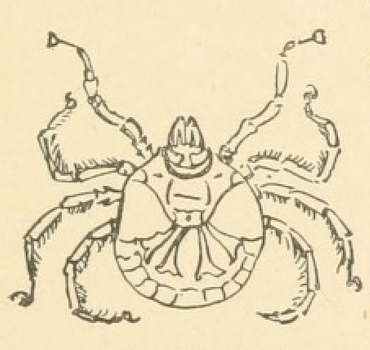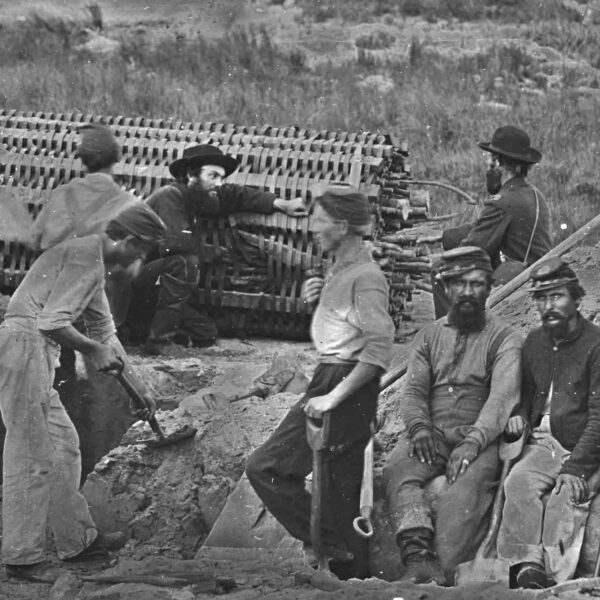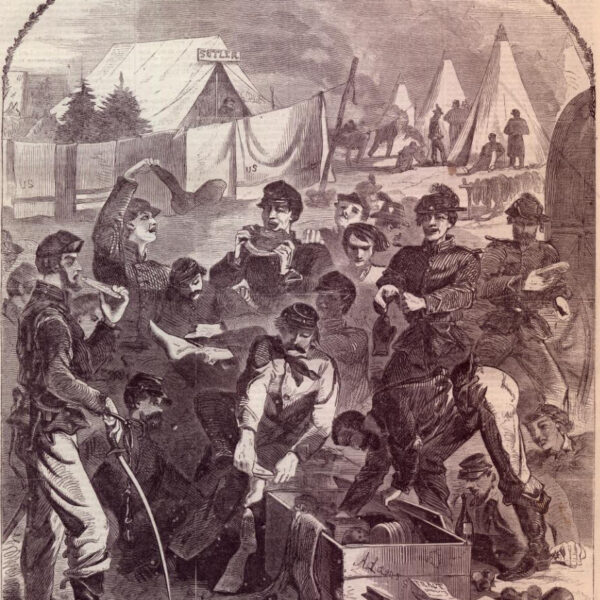 The Diary of a Young Officer Serving with the Armies of the United States During the War of the Rebellion (1909)
The Diary of a Young Officer Serving with the Armies of the United States During the War of the Rebellion (1909)Josiah M. Favill, 57th New York Infantry
Josiah M. Favill, a young officer in the 57th New York Infantry, kept a detailed diary during the Civil War. In one entry, dated May 16, 1862, Favill writes about a common summer pest found (then and now) in the eastern U.S.—the wood tick. Read his itch-enducing description of his—and his comrades’—encounters with the aggressive insect below:
May 16[, 1862] This morning was simply perfect; early the air was resonant with the music of birds, and later on with the music of numerous bands. What would an army be without music? Music puts us in good humor, braces our nerves, and makes us cheerful and contented, whatever our surroundings may chance to be. It would be a dreary service indeed without music, and I don’t believe the men could be kept together without it. The country we marched over yesterday was covered everywhere with pines, few cultivated fields or houses, apparently a desert waste. Our quarters are just under cover of some large pines, with open ground in front; on every side, as far as the eye can reach, are vast camps of men, horses, guns, and wagons; orderlies and aides ride everywhere; batteries are moving into position, flags flutter in the breeze, and picturesque groups of men and horses are indefinitely multiplied; in fact, on all sides we see the glorious pomp and circumstance of war, and in dead earnest too, for are we not separated from the foe by only two small miles? Who would not be a soldier in time of war?
 Hard Tack and Coffee (1887)
Hard Tack and Coffee (1887)A soldier’s postwar sketch of a “wood-tick.”
Why we should remain inactive all day long so near the enemy I can’t find out, unless it is to give him a chance to intrench; it is very clear we are not going to surprise anybody. In the meantime, we have been occupying ourselves in the study of natural history, particularly with the pine tick, an insect abounding in these parts; it has a spiral proboscis by which it screws itself fast to the fleshy part of one’s body, without attracting attention or causing any pain, and then quietly proceeds to gorge itself with blood, until it swells to the size of a large coffee berry, and looks almost exactly like one in color and shape. It is at this stage that you begin to feel an itching, and looking for the cause, find half a dozen or more of these ugly black-looking berries sticking on your legs; naturally, you yank them off without hesitancy, but are astonished to find the itching increases, and the inflamation and swelling continues spreading. Upon a close inspection, one finds that on pulling the creature off, his proboscis was left behind, imbedded deeply in the flesh, and this is the cause, or seems to be, of all the trouble. The remedy is to boldly cut out the offending head; there is, however, a scientific method of removing them, when first discovered, and that is, simply to unscrew them; seizing them carefully between the thumb and forefinger, you gently turn to the left, and are surprised to find they come out easily, and completely, exactly like a screw.
Source
The Diary of a Young Officer Serving with the Armies of the United States During the War of the Rebellion (1909), 96–97.




